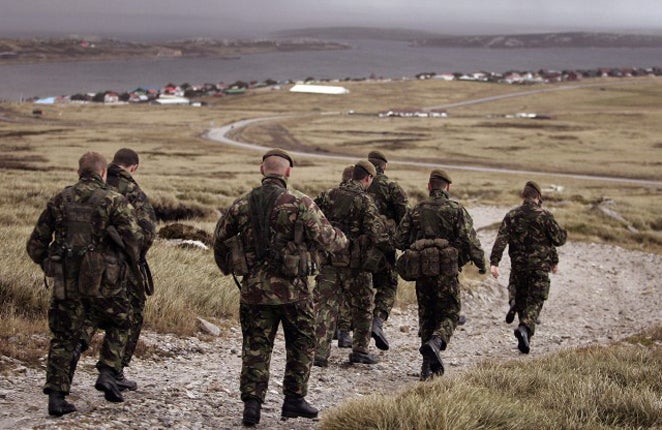Falklands oil strike by Desire Petroleum adds political heat

Desire Petroleum has struck oil off the Falkland Islands, threatening to reignite the diplomatic row between Britain and Argentina over sovereignty in the region.
The find at the 3052 metre Rachel North well on the Northern side of the islands is made up of a 57-metre "net pay zone" of oil layers, the thickest of which is 8 metres deep, with an average porosity – which is crucial to establishing how much oil is held by the rock – of a respectable 20 per cent.
The company must now complete a programme of "wireline" logging and sampling to establish the quality of the reservoir and the type of oil, before it will be clear if the find is commercially viable or not.
Desire Petroleum's shares rocketed up by 46 per cent in early trading immediately after the announcement, and closed up 24.76 per cent at 132.25p last night.
Rachel North is the second strike in the region, following a find by rival Rockhopper Exploration in May. Rockhopper owns a 7.5 per cent stake in Desire's well and also saw an 8.1 per cent rise in its share price following yesterday's announcement.
Stephen Phipps, the chairman of Desire Petroleum, was bullish on the Rachel North find yesterday. "It is highly encouraging that the initial results from the Rachel North well endorse both our findings and geological model from the previously drilled Rachel sidetrack well," he said. "This discovery, combined with Rockhopper's Sea Lion discovery, confirms our belief that the eastern flank play fairway in the North Falkland Basin is highly prospective and that further oil fields will be discovered in this area."
If Mr Phipps's optimism is borne out, the political contretemps over who owns the disputed Falkland Islands will shoot back up the agenda. Buenos Aires has claimed sovereignty over what Argentinians know as the "Islas Malvinas" for nearly 200 years and the issue remains unresolved, despite Britain's successful defence of the islands against an Argentine invasion in 1982.
The oil industry has long had an interest in exploration in the region. But until this year, drilling yielded nothing – despite US Geological Survey estimates that the waters around the islands may hold as many as four billion barrels of oil. The first round of exploration, in 1998, drew a complete blank. And Desire Petroleum's first foray in this year's drilling "campaign" found only deposits too thin to be commercially viable.
But Argentina was already rattling its sabres. At the start of the year President Cristina Kirchner turned her attention to oil exploration, framing new laws requiring permits for ships passing through Argentinian waters.
And that was before Rockhopper made the first successful strike at a prospect called Sea Lion.
If either the Rockhopper find or the latest Desire Petroleum strike turn out to be commercially viable, the political pressures in the region will ratchet up yet another level. But Argentina has few options short of direct military involvement. Even banning oil companies from using Argentinian ports will only suck business away from the local economy and boost investment in development of alternative facilities at Port Stanley, in the Falklands.
Subscribe to Independent Premium to bookmark this article
Want to bookmark your favourite articles and stories to read or reference later? Start your Independent Premium subscription today.

Join our commenting forum
Join thought-provoking conversations, follow other Independent readers and see their replies